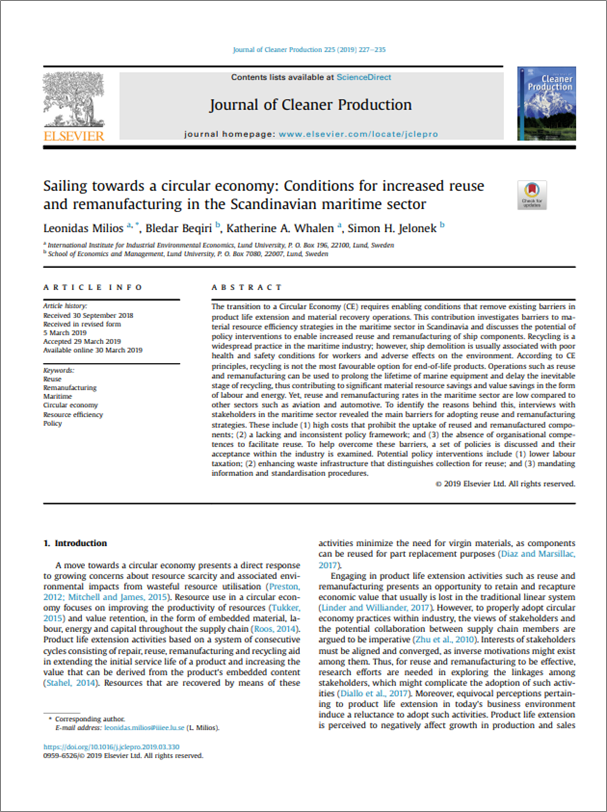Abstract
The transition to a Circular Economy (CE) requires enabling conditions that remove existing barriers in product life extension and material recovery operations. This contribution investigates barriers to material resource efficiency strategies in the maritime sector in Scandinavia and discusses the potential of policy interventions to enable increased reuse and remanufacturing of ship components. Recycling is a widespread practice in the maritime industry; however, ship demolition is usually associated with poor health and safety conditions for workers and adverse effects on the environment. According to CE principles, recycling is not the most favourable option for end-of-life products. Operations such as reuse and remanufacturing can be used to prolong the lifetime of marine equipment and delay the inevitable stage of recycling, thus contributing to significant material resource savings and value savings in the form of labour and energy. Yet, reuse and remanufacturing rates in the maritime sector are low compared to other sectors such as aviation and automotive. To identify the reasons behind this, interviews with stakeholders in the maritime sector revealed the main barriers for adopting reuse and remanufacturing strategies. These include (1) high costs that prohibit the uptake of reused and remanufactured components; (2) a lacking and inconsistent policy framework; and (3) the absence of organisational competences to facilitate reuse. To help overcome these barriers, a set of policies is discussed and their acceptance within the industry is examined. Potential policy interventions include (1) lower labour taxation; (2) enhancing waste infrastructure that distinguishes collection for reuse; and (3) mandating information and standardisation procedures.
Cite as: Milios, L., Beqiri, B., Whalen, K. A., & Jelonek, S. H. (2019). Sailing towards a circular economy: Conditions for increased reuse and remanufacturing in the Scandinavian maritime sector. Journal of Cleaner Production, 225, 227–235. https://doi.org/10.1016/j.jclepro.2019.03.330
